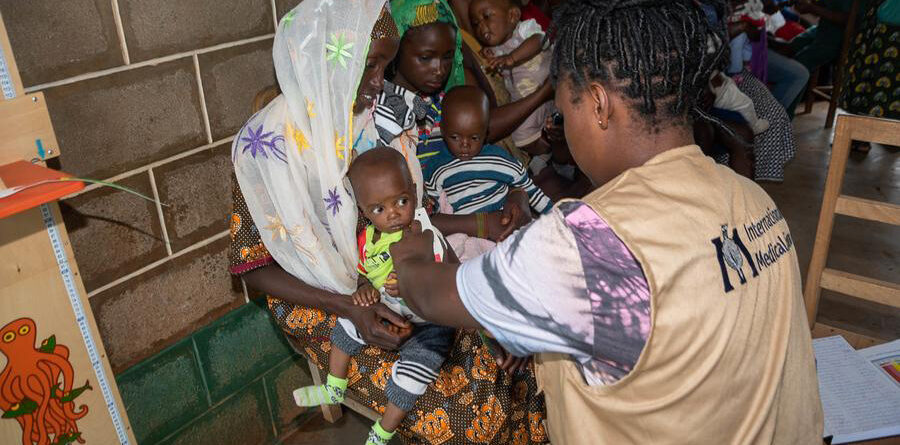Since 2008, International Medical Corps has provided lifesaving nutrition and health services in Cameroon’s Northwest region, where armed conflict presents significant challenges to the delivery of humanitarian aid. Violence displaces families, interferes with freedom of movement and limits access to health services. Despite these hazards, our staff in Cameroon operates across the underserved Northwest region, having earned a reputation for doing vital work impartially and effectively, which enables them to move through conflict zones with relative ease.
Because most people in the region speak a variety of West African Pidgin, it is crucial to our work that our local staff can speak with local community members in their primary language. This is just another reason why the vast majority of International Medical Corps staff members are hired from or near the communities they serve. Leveraging these skills, our teams are able to educate people about health issues while providing services in the areas of primary healthcare, sexual and reproductive health, and nutrition.
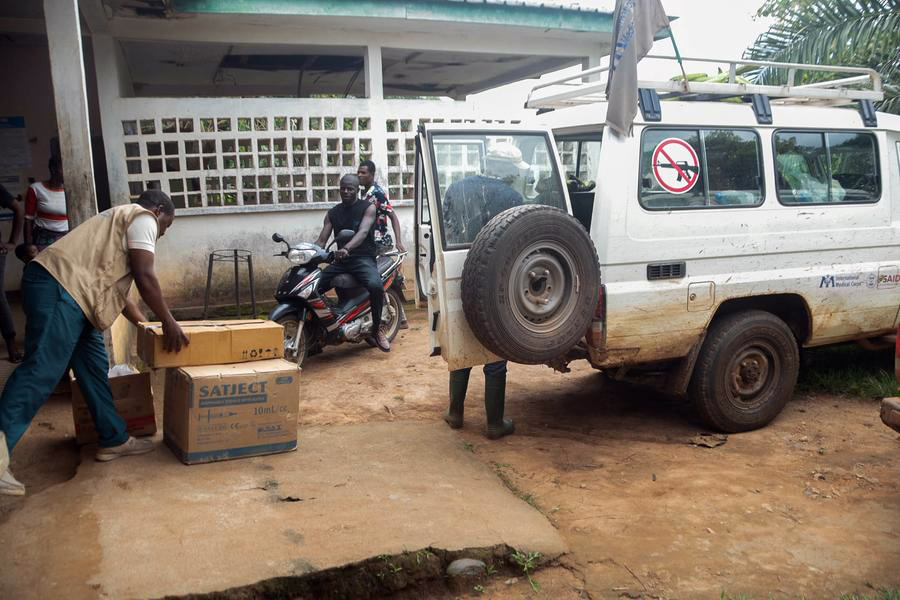
International Medical Corps staff in Cameroon deliver medicines to a small pharmacy in Buku village, Ako commune, Northwest region. The pharmacy provides medicines that would otherwise be unavailable for the nearly 3,000 people living in the area. International Medical Corps also employs three full-time staff to operate the pharmacy. The no-guns sticker on the vehicle is a symbol of our neutral, humanitarian role that communicates that the car cannot transport any guns, armed people or anyone with a military connection. Our role as humanitarians, combined with the staff’s relationships among the local communities, is key to our success in this underserved region.
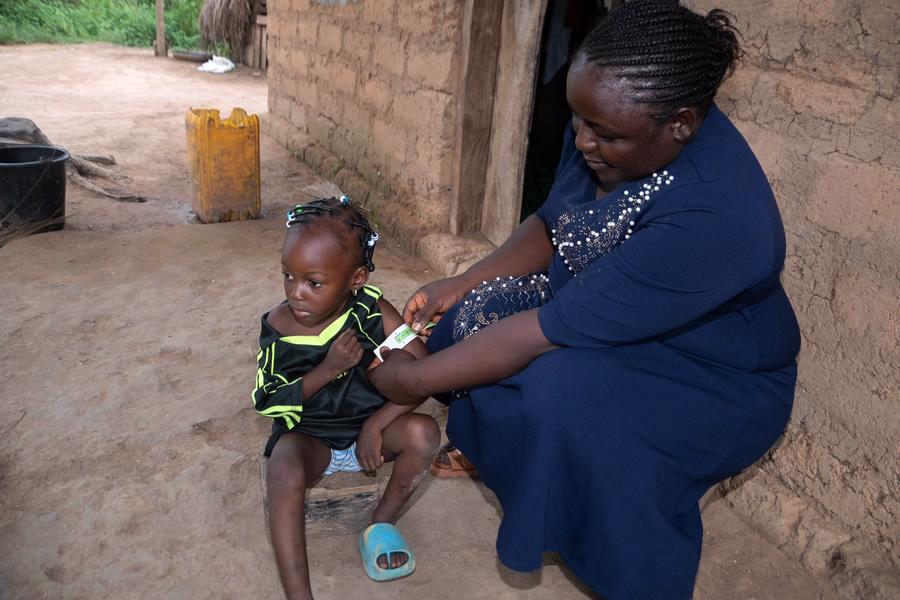
A mother in Buku village measures her daughter’s middle upper–arm circumference (MUAC), an indicator of the child’s nutritional status. Our staff in Cameroon trains families to measure their children’s MUAC so that they can independently monitor for malnutrition.
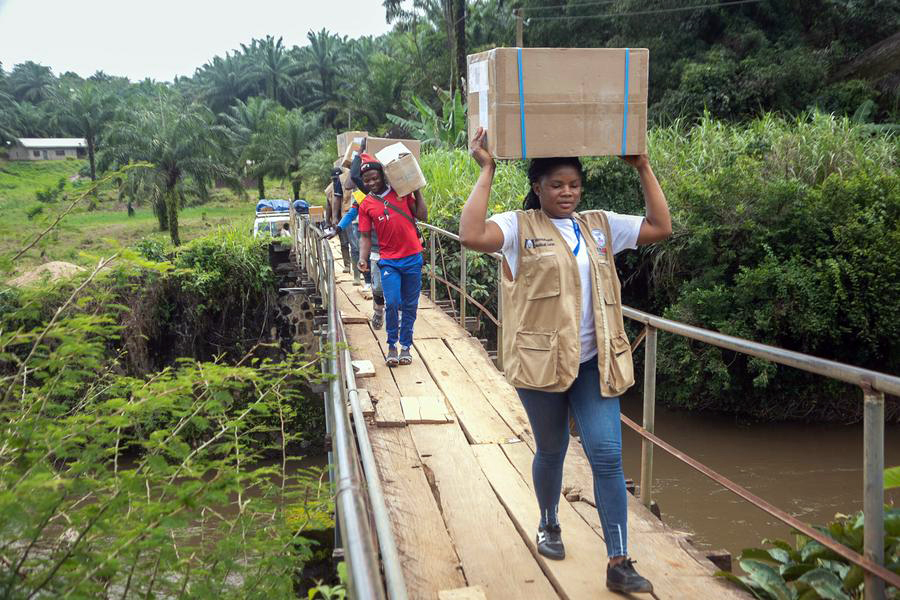
Yeye Zulehatu, Nutrition Assistant (foreground), delivers medication to the Fonfuka health outpost in Northwest Cameroon.
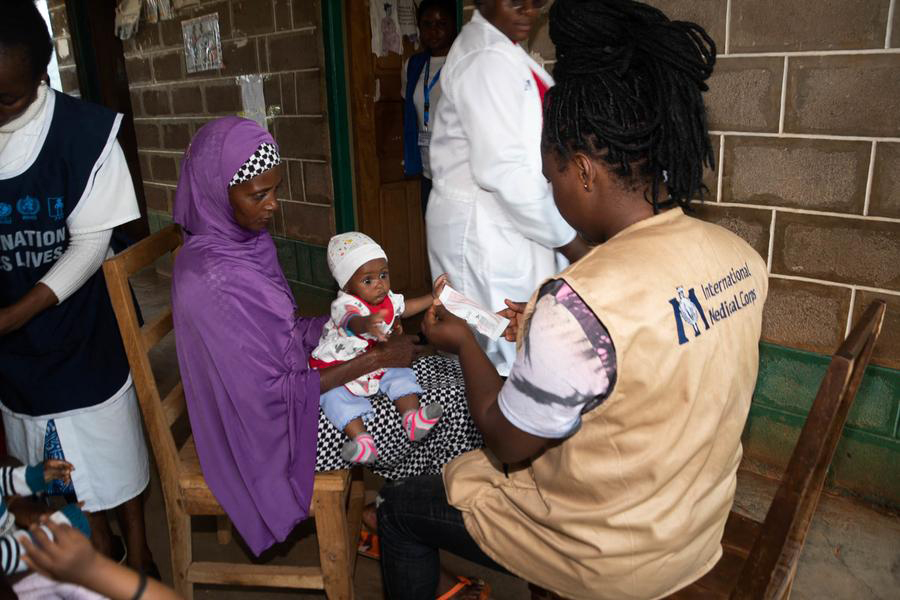
Evate Fulal Nyinchuo, Nutrition Assistant, evaluates children for malnutrition as part of the maternal, infant and young–child nutrition programme at Fonfuka health outpost in Northwest Cameroon. These evaluations have led to a significant reduction in malnutrition cases across the country.
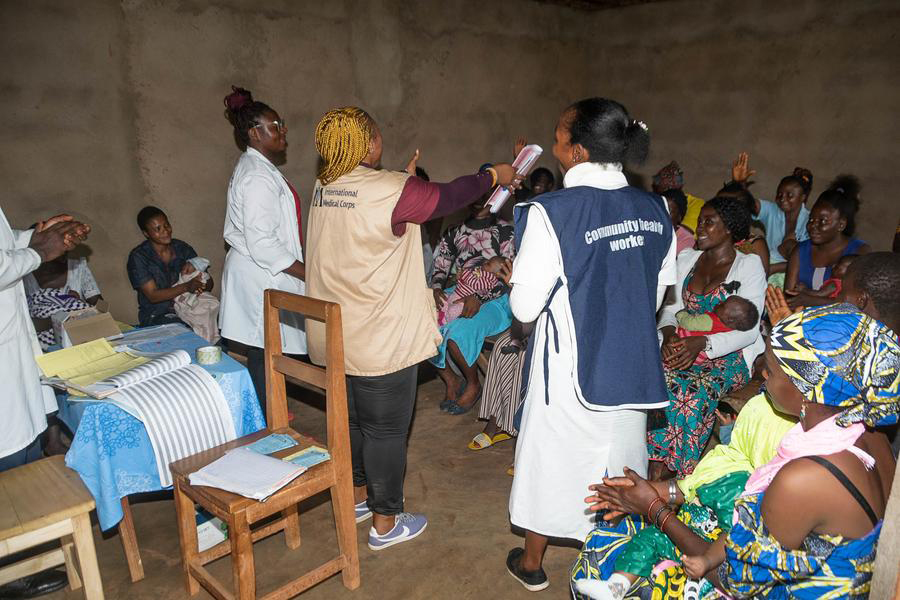
Marion Ayuk (tan vest), Program Assistant, and Bertha Tabi (white lab coat) and Banaki Grace (dark blue apron), volunteer midwives, educate mothers about childhood illnesses. Our teams conduct these educational sessions while community members await no-cost health consultations at our Fonfuka health outpost’s infant welfare clinic.
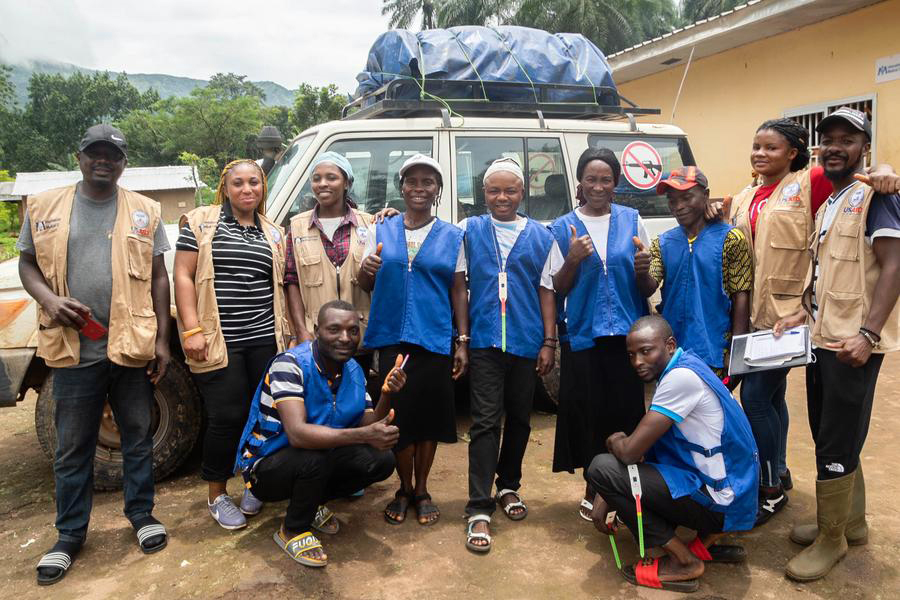
Our staff at Akwaja health centre pose for a group photo (from left: Ernest Tayoh, Marion Ayuk, Henrietta Awan Mbah, Pamela Mbamu, Ntanya Sebastine, Bwashi Marvis, Buka Felix, Yeye Zulehatu and Daniel Ambe).
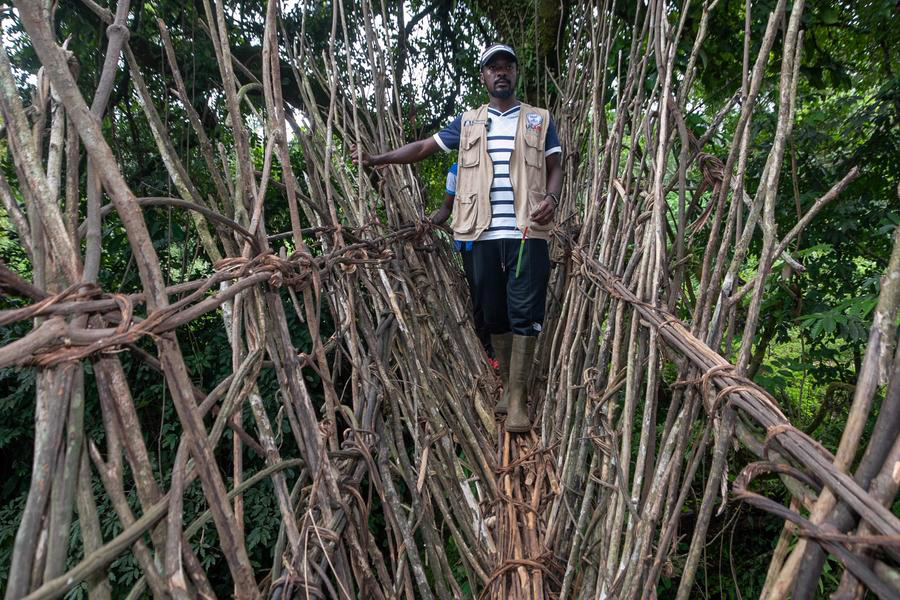
Daniel Ambe, Nutrition Assistant (pictured crossing a bridge above), and colleagues (see below) conduct a malnutrition follow-up home visit in Akwaja, a village in Cameroon’s Northwest region. Our staff conduct these visits to reach community members who are unable to visit the Akwaja health centre.
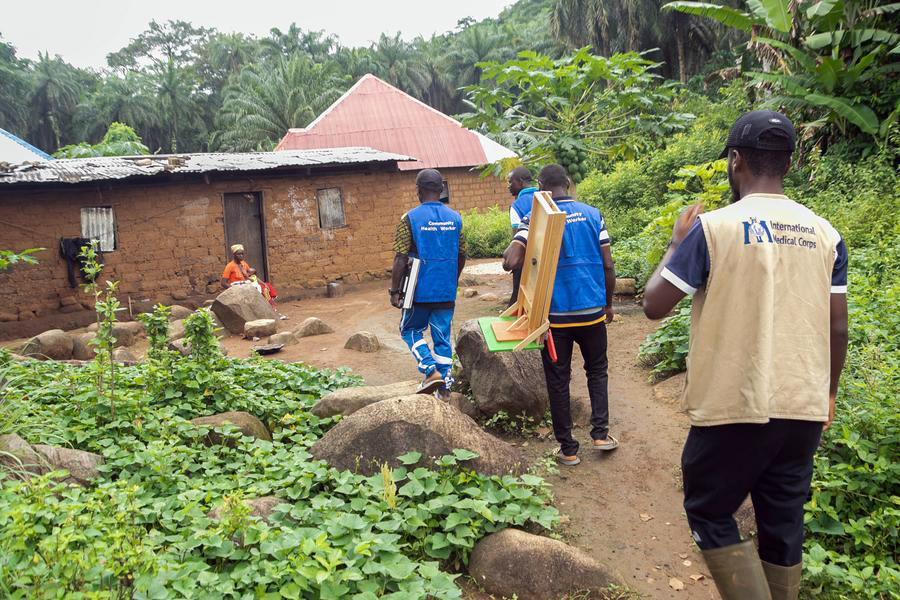
To keep up to date on International Medical Corps’ work to help communities facing crises around the world, sign up for our email list.
